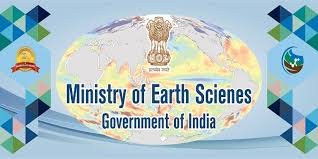Ministry of Earth Sciences Celebrates 18th Foundation Day
Introduction
The Ministry of Earth Sciences (MoES) celebrated its 18th Foundation Day on July 27, 2024, marking nearly two decades of significant contributions to India’s scientific and technological advancements in earth sciences. The event highlighted the ministry’s achievements and future plans in the fields of weather forecasting, oceanography, seismology, and climate science.
Significant Achievements
Over the years, MoES has played a pivotal role in advancing India’s capabilities in weather forecasting and disaster management. The ministry’s efforts have resulted in the development of state-of-the-art weather prediction models that have significantly improved the accuracy of weather forecasts. These advancements have been crucial in mitigating the impacts of natural disasters such as cyclones and floods.
Innovations in Oceanography
MoES has also made substantial progress in the field of oceanography. The ministry’s initiatives include the establishment of the Indian Tsunami Early Warning Centre, which has been instrumental in providing timely warnings and saving countless lives. Furthermore, the ministry has been involved in extensive research on marine ecosystems, contributing to the sustainable management of marine resources.
Advancements in Seismology
In the realm of seismology, MoES has established a comprehensive earthquake monitoring network across the country. This network has enhanced the ability to detect and analyze seismic activities, thereby aiding in the development of more effective earthquake preparedness and response strategies. The ministry’s efforts have been crucial in reducing the risks associated with seismic events.
Climate Science and Policy
MoES has been at the forefront of climate science research in India. The ministry has undertaken several projects to study climate change and its impacts on the country. These studies have informed national policies and strategies aimed at mitigating the effects of climate change and promoting sustainable development. The ministry’s work has been vital in shaping India’s climate action plans.
Future Plans
Looking ahead, MoES aims to further enhance its capabilities in earth sciences through innovative research and technological advancements. The ministry plans to expand its observational networks, develop more sophisticated prediction models, and strengthen its collaborations with international organizations. These efforts will ensure that India remains at the forefront of scientific research and disaster management.

Why This News is Important
Impact on Disaster Management
The advancements made by the Ministry of Earth Sciences have had a profound impact on disaster management in India. Accurate weather forecasts and timely warnings have significantly reduced the loss of life and property during natural disasters. The ministry’s work is crucial for ensuring the safety and well-being of the population, especially in disaster-prone areas.
Contributions to Scientific Research
The Ministry of Earth Sciences has made significant contributions to scientific research in India. Its initiatives in weather forecasting, oceanography, seismology, and climate science have advanced the country’s scientific knowledge and technological capabilities. These contributions are essential for addressing the challenges posed by climate change and natural disasters.
Support for Sustainable Development
The ministry’s research on marine ecosystems and climate change has informed national policies aimed at promoting sustainable development. By providing valuable data and insights, MoES has played a key role in shaping India’s strategies for environmental conservation and sustainable resource management. This work is vital for ensuring the country’s long-term environmental sustainability.
Enhancement of National Security
The establishment of comprehensive monitoring networks for weather, ocean, and seismic activities has enhanced India’s national security. These networks provide critical information for disaster preparedness and response, helping to protect the country’s infrastructure and population. The ministry’s efforts are crucial for maintaining national security in the face of natural disasters.
Promotion of International Collaboration
MoES’s collaborations with international organizations have strengthened India’s position in the global scientific community. These partnerships have facilitated the exchange of knowledge and expertise, enabling India to benefit from the latest advancements in earth sciences. The ministry’s work in fostering international collaboration is essential for addressing global challenges such as climate change.
Historical Context
Establishment of the Ministry
The Ministry of Earth Sciences was established in 2006 with the aim of promoting scientific research and technological advancements in earth sciences. The ministry was created by merging several existing organizations, including the India Meteorological Department and the National Centre for Medium-Range Weather Forecasting. Since its inception, MoES has been dedicated to advancing India’s capabilities in weather forecasting, oceanography, seismology, and climate science.
Major Milestones
Over the years, MoES has achieved several significant milestones. The establishment of the Indian Tsunami Early Warning Centre in 2007 was a major accomplishment that enhanced India’s ability to detect and respond to tsunami threats. The ministry’s development of advanced weather prediction models has also been a key milestone, improving the accuracy of weather forecasts and disaster management.
Impact of Climate Change Research
MoES has been at the forefront of climate change research in India. The ministry’s studies on climate change have provided valuable insights into its impacts on the country, informing national policies and strategies. These research efforts have been crucial for shaping India’s climate action plans and promoting sustainable development.
Expansion of Observational Networks
In recent years, MoES has expanded its observational networks for weather, ocean, and seismic activities. These networks have enhanced the country’s capabilities in monitoring and analyzing environmental changes. The expansion of these networks has been a significant step towards improving disaster preparedness and response strategies.
Key Takeaways from Ministry of Earth Sciences Celebrates 18th Foundation Day
| Serial Number | Key Takeaway |
|---|---|
| 1 | MoES celebrated its 18th Foundation Day on July 27, 2024. |
| 2 | Significant advancements in weather forecasting and disaster management. |
| 3 | Establishment of the Indian Tsunami Early Warning Centre. |
| 4 | Comprehensive earthquake monitoring network across India. |
| 5 | Future plans to enhance capabilities through innovative research and international collaborations. |
Important FAQs for Students from this News
1. What is the significance of the Ministry of Earth Sciences’ Foundation Day?
The Ministry of Earth Sciences’ Foundation Day marks the anniversary of the ministry’s establishment and highlights its achievements and contributions to earth sciences in India. It serves as a platform to review past accomplishments and outline future goals.
2. What major achievements has the Ministry of Earth Sciences accomplished since its establishment?
Since its establishment, MoES has made significant contributions in weather forecasting, oceanography, seismology, and climate science. Key achievements include the development of advanced weather prediction models, the establishment of the Indian Tsunami Early Warning Centre, and the creation of a comprehensive earthquake monitoring network.
3. How does the Ministry of Earth Sciences contribute to disaster management in India?
MoES contributes to disaster management by providing accurate weather forecasts, early warnings for tsunamis, and monitoring seismic activities. These efforts help in timely responses to natural disasters, thereby reducing the risk of loss of life and property.
4. What future plans does the Ministry of Earth Sciences have for enhancing its capabilities?
MoES plans to expand its observational networks, develop more sophisticated prediction models, and strengthen international collaborations. These initiatives aim to advance research and improve disaster management strategies.
5. How does MoES support sustainable development in India?
MoES supports sustainable development through research on marine ecosystems and climate change. The data and insights provided by the ministry inform national policies and strategies aimed at environmental conservation and sustainable resource management.
Some Important Current Affairs Links


















